General
Prof. Noble Banadda Laid to Rest
Published
5 years agoon
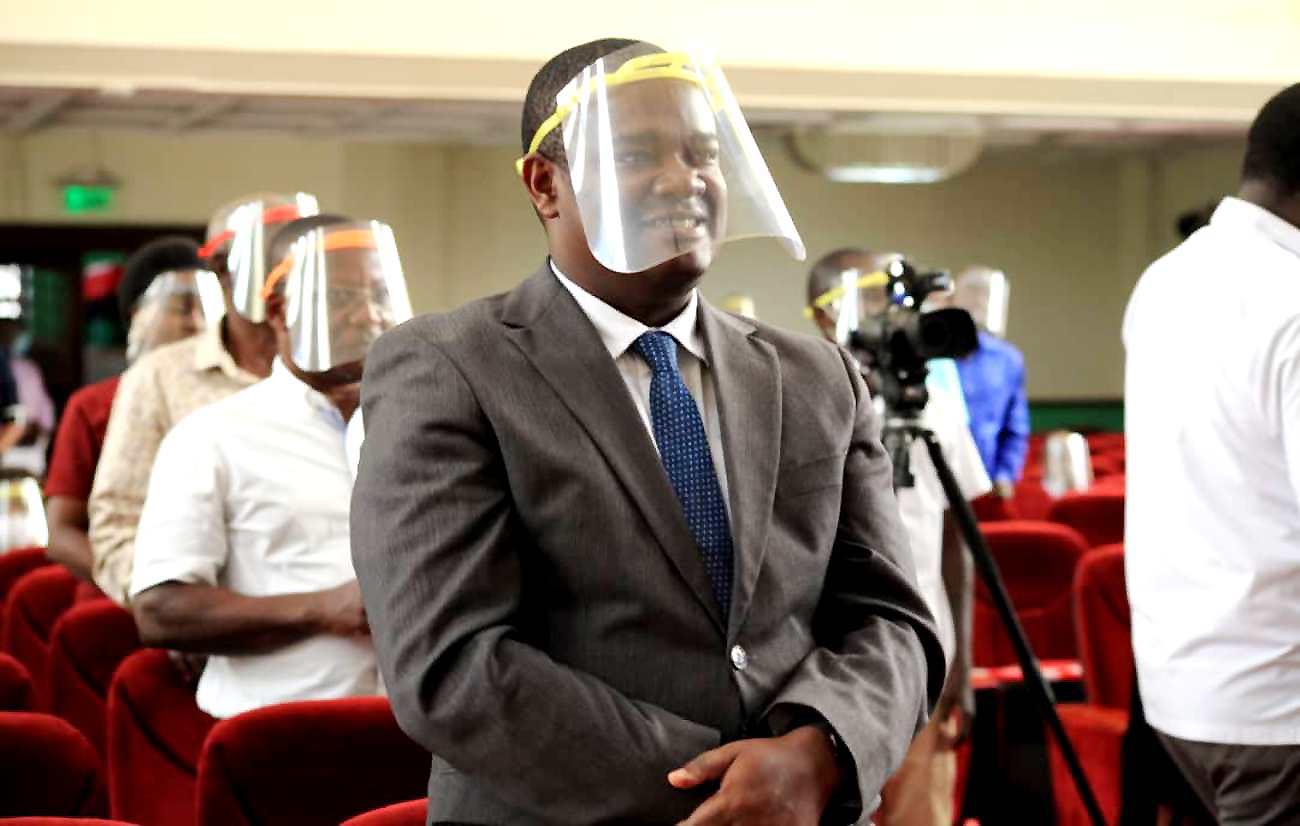
Prof. Noble Banadda has been laid to rest at his ancestral home at Lukooge Sempa, Luweero District.
Prof. Banadda succumbed to COVID-19 on 1st July, 2021 in a Kampala hospital. The celebrated professor was buried on Sunday 4th July 2021 and his funeral service relayed to hundreds of mourners within Uganda and the diaspora via zoom.
Banadda’s sendoff was attended by representatives from Government, Makerere University, Uganda Petroleum Authority, different educational, religious, research institutions, family members, friends, old boys and girls among others.
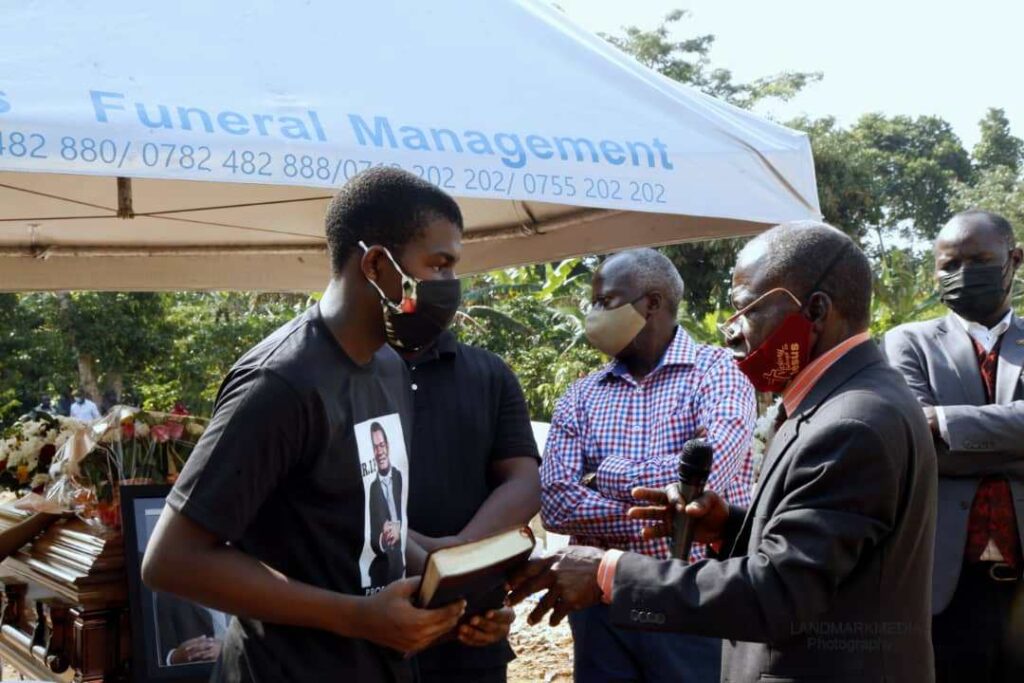
The service was performed by the Seventh Day Adventist Church of Uganda (SDA) led by Pastor George William from Lukooge parish assisted by Pastor Maber Paul from Katikamu SDA Secondary School, Pastor Sonko Fred and Pastor John Ssempa.
Pastor George described the demise of Prof. Banadda as a great loss to academia, the country, the church and family.
He however said, death is not an end, imploring the aggrieved to hold onto Jesus Christ , who conquered death, the only comforter and one that will come again to judge the living and the dead.
In his sermon the pastor told mourners that when the Messiah comes, every sad situation, challenges and predicaments will be no more. Citing Isaiah 61.1, the pastor said at his coming, the Messiah will proclaim God’s freedom to those that are bound and give joy to the grieving
He said whereas the law demands that we die, thanks to the Messiah as written in John 3:16, whoever believes in Him shall have eternal life.
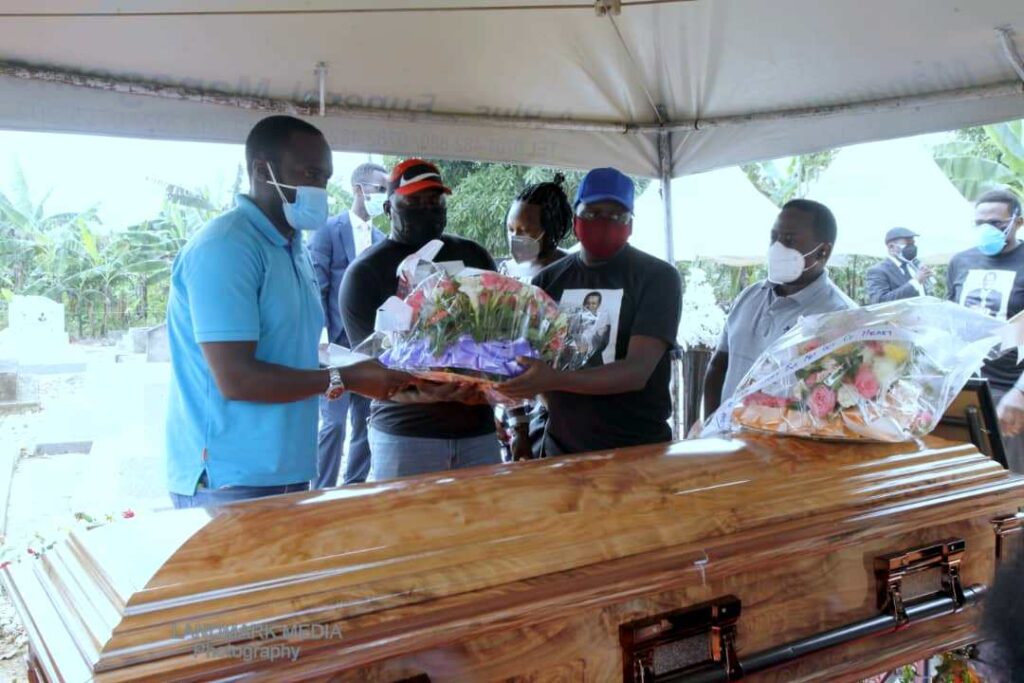
Paying their last respects, mourners described Banadda as not just an ordinary professor, but a researcher, innovator, generous, a wonderful friend, humble, dependable and dedicated worker, a legend and true genius of the times.
Speaking on behalf of Makerere University, the Dean School of Food Technology, Nutrition and Bioengineering Dr. Abel Atukwase conveyed apologies on behalf of the Principal and Vice Chancellor who were not able to make it to the send-off due to earlier scheduled commitments.
Dr. Atukwase delivered a message of condolence from the college and the school saying, the university had earlier held a church service on 2nd July 2021 in honor of Prof. Banadda’s contribution to the university adding that, the Vice Chancellor’s condolence message had been circulated on different social media platforms.
Dr. Atukwase said the University was greatly saddened by the passing on of Prof. Banadda as a colleague, a mentor and a teacher.
Banadda, the Dean said, joined the university as a part time lecturer in the then Department of Food Science and Technology in 2006 and later in 2011 he was appointed full lecturer and quickly rose through the ranks. He was promoted to full professor under the fast track promotion in 2012 given his robust research profile.
“He served diligently as a Professor of Agricultural and Bio systems engineering, teaching and conducting research and secondly as the Head of Department and, by the time of his death, he was left with two months to the end of his second term as Head in August 2021.
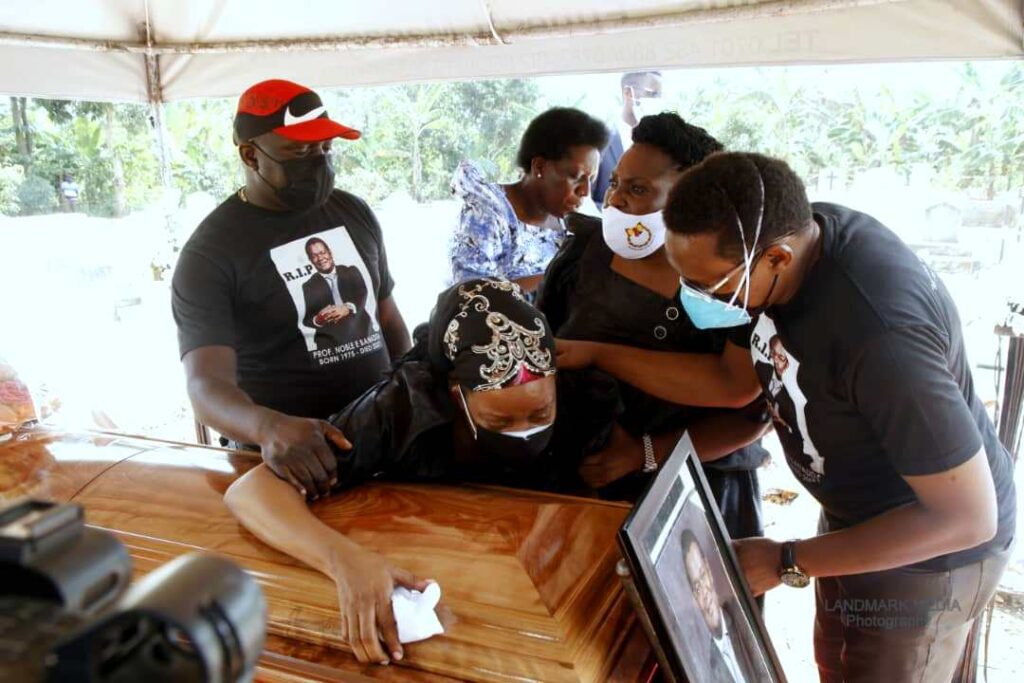
He served as member of the University Senate and represented the School on different national and international fora. He was a prolific researcher and one who won many accolades that led to the growth of the school.
He supported and mentored staff and students, sourced for scholarships, supervised students and provided guidance,” Dr. Atukwase said.
He pledged that the School and the University would work hard to continue with Prof. Banadda’s legacy of research excellence given that he worked with a strong dedicated team of staff and students.
He encourage the bereaved family with Psalm 18:2 to hold onto the Lord as the fortress and the rock in whom they should take refuge.
The President SDA in Uganda Dr. Matte Daniel told mourners that in the midst of the heavy hearts due to this bereavement, they should turn to Jesus as the only hope in this world.
“We share our heartfelt condolence for the loss of a beloved father, son, dependable worker and very dedicated citizen of Uganda and member of the University and Church.
We have been cheated of a humble, passionate, respectful, honest and committed man. Death is evil and cruel and the biggest enemy of the human race.
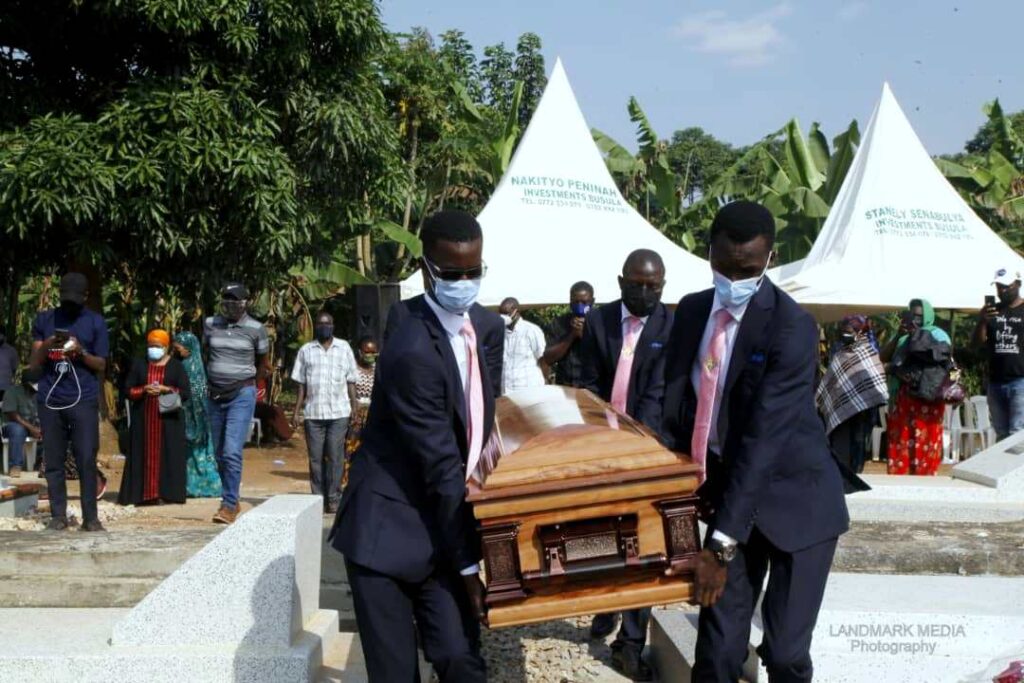
Before death we are all vulnerable and helpless. The only logical and sensible lesson is that man needs God”, Dr. Matte stated.
Ernest Rubondo from the Petroleum Authority of Uganda said, Banadda was a very responsible man who served as Board Member on the technical, governance and audit committee of the oil and gas sector.
Rubondo said Banadda was nominated by the President and had been the Board Member that oversaw supervision of the Executive Director and management.
“He gave a lot of advice to the Authority, was critical by virtue of being an academician and very inquisitive in the quest to learn. He was full of strength, innovative and a very cheerful and humble person,
His contribution to Uganda’s gas and oil sector specifically to the Authority’s mandate will be missed. His commitment has enriched the authority.
The notable aspects during his service include his contribution to the preparation of the country’s report 2020.
He offered technical insights in the development of the state-of-the-art petroleum data center to handle the country’s data and information”, Rubondo remarked.
Rubondo said it will be difficult to replace him in many roles and responsibilities he has been handling adding that, his career growth to full professor at the age of 37 and the Papal Award were significant reflections.
He said God takes good people early and it is only human that the bereaved accepted his death as written in Romans:8:28.
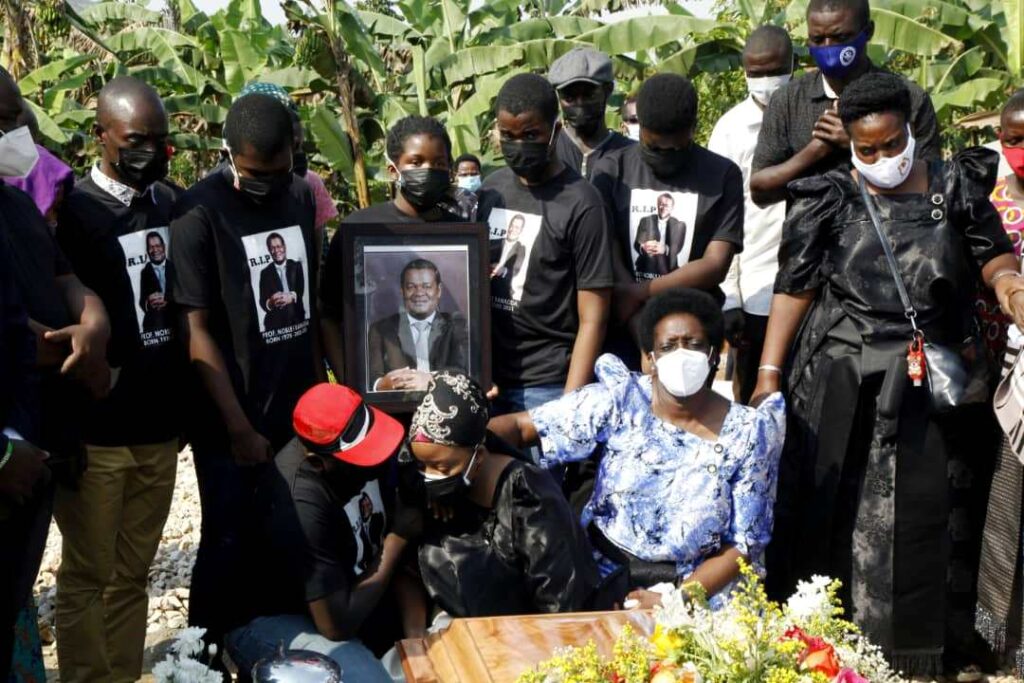
Speaking on behalf of the deceased friends, Moses Mayanja also Prof. Banaddas Best man said Prof. Banadda was an inspirational and trustworthy friend.
“We first met in 1988 at Bugema Secondary School and even when we separated after senior four, he kept in touch. I dropped from the academic line to join business but he inspired me until I went back to school for a Bachelor’s degree in Economics and later did a Masters.
Banadda had a rare trait of trust and commitment. He has served his family, church, community and the nation in different capacities and in Munyonyo where he lived, he was engaged in the welfare of members. I have lost a friend with whom we shared a lot”, Mayanja said.
Speaking on behalf of the family, Dr. Jimmy Kitumba said they had lost a pillar in the clan, a brother, friend, a father who was also the heir to his father.
“I have lost a brother, a generous, supportive and a uniting factor” Dr. Kitumba said.
Dr. Kitumba thanked Makerere University, the Petroleum Authority of Uganda, the various institutions, friends and relatives for the physical, financial and moral support accorded during Banadda’s hospitalization and clearance of the medical bills.
Prof. Banadda is survived by wife Dr. Beatrice Namaganda Banadda, and three children Daniel Mayombwe Banadda, David Lutaaya Banadda and Joy Deborah Nalutaaya Banadda.
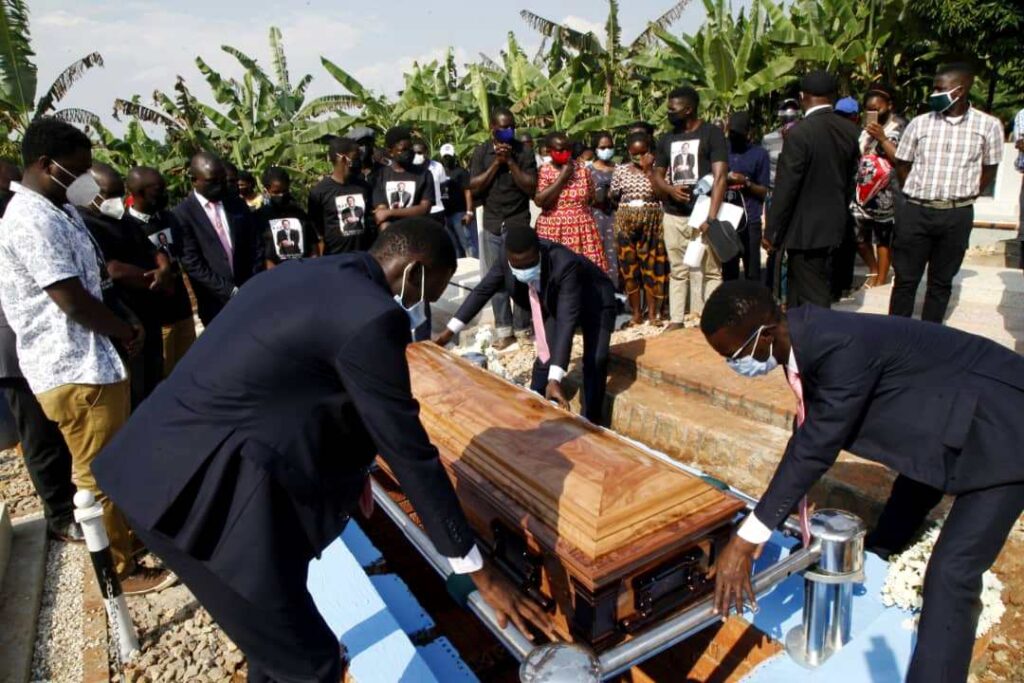
In their tribute read for them, the children described their father as Papa who was loving, caring and one that was very much interested in knowing what they would like to become in future.
“…Father was a very hard working man and loved the family. He always asked us what we want to be and told us to look at him as an example. He told us that life is full of challenges but it is fair if you attain an education. Now, it is up to us to write a chapter in our lives.
My mother is special and hardworking and she has never got enough sleep. This time, she is going to be working very hard and alone for our life,” parts of the children’s tribute read.
The widow Dr. Beatrice Namaganda Banadda said the late developed complications on 29th May 2021, three days after receiving his second jab of the COVID-19 vaccine on 26th May 2021 and started complaining of a sore throat, body weakness, sweating and breathing problems. These led to his hospitalisation in the ICU at Case hospital where he battled the disease for about four weeks until 1st July when he passed on.
Mrs. Banadda thanked all for standing by the family during the difficult times.
“Noble was my best friend and husband, he was the best father, he was the best everything he did for his family
He provided for everything. Everything I wanted, he would provide more. I don’t know where to go from here being that he has been everything. You let me fly and then my wings are cut, I don’t know.
Noble I really thank you for everything you did. I really hope and pray that God receives you in his boardroom and hope you can rest in real peace”, Dr. Beatrice Banadda bid farewell to her husband.
May the Almighty God strengthen Beatrice, the children and entire family.
Farewell Prof. Noble Banadda, Rest in Peace.
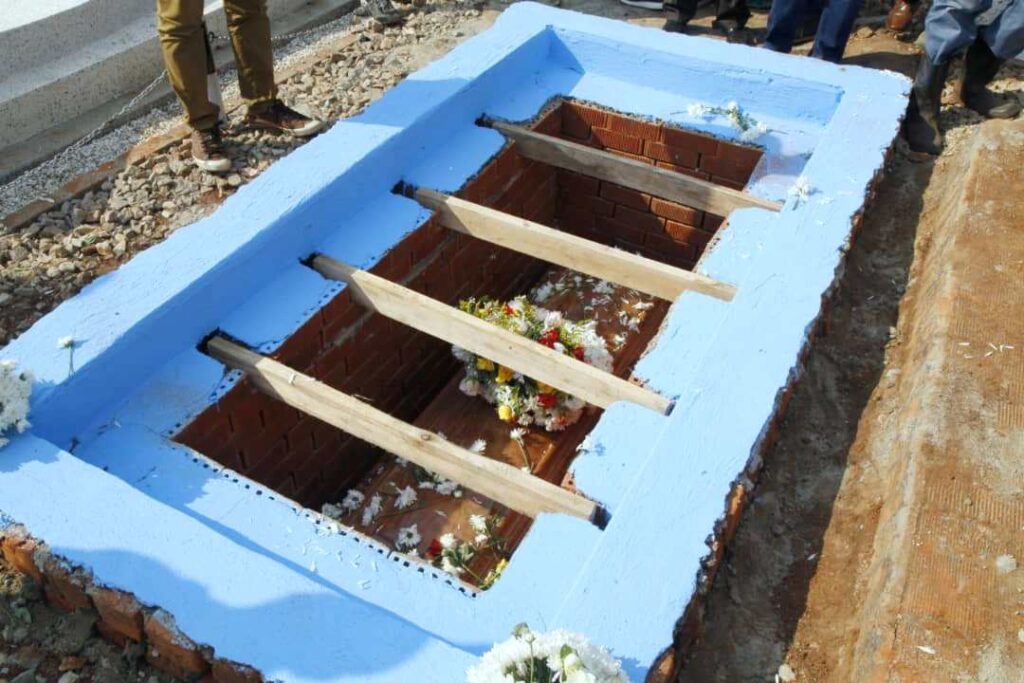
Compiled by;
Jane Anyango,
Principal Communication Officer, CAES
Photography Courtesy of Landmark Media
Related articles
You may like
-
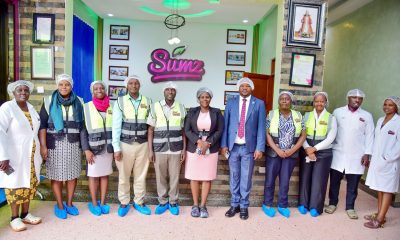

Makerere Explores Strategic Industry Partnership with Psalms Food Industries to Strengthen Manufacturing Innovation
-


Makerere Graduation Underscores Investment in Africa’s Public Health Capacity
-


Botswana Delegation Visits Makerere’s Public Investment Management Centre to Study Sustainable Training Model
-


Makerere University commemorates 13 transformative years of partnership with Mastercard Foundation
-


200 UVTAB students graduate: CEES emphasizes Skills, Integrity and Community Impact
-
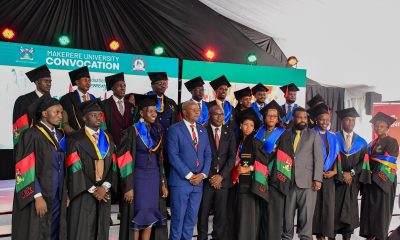

76th Graduation Ceremony: CoBAMS Staff and Graduates Win Excellence Awards
General
Makerere Explores Strategic Industry Partnership with Psalms Food Industries to Strengthen Manufacturing Innovation
Published
8 hours agoon
March 4, 2026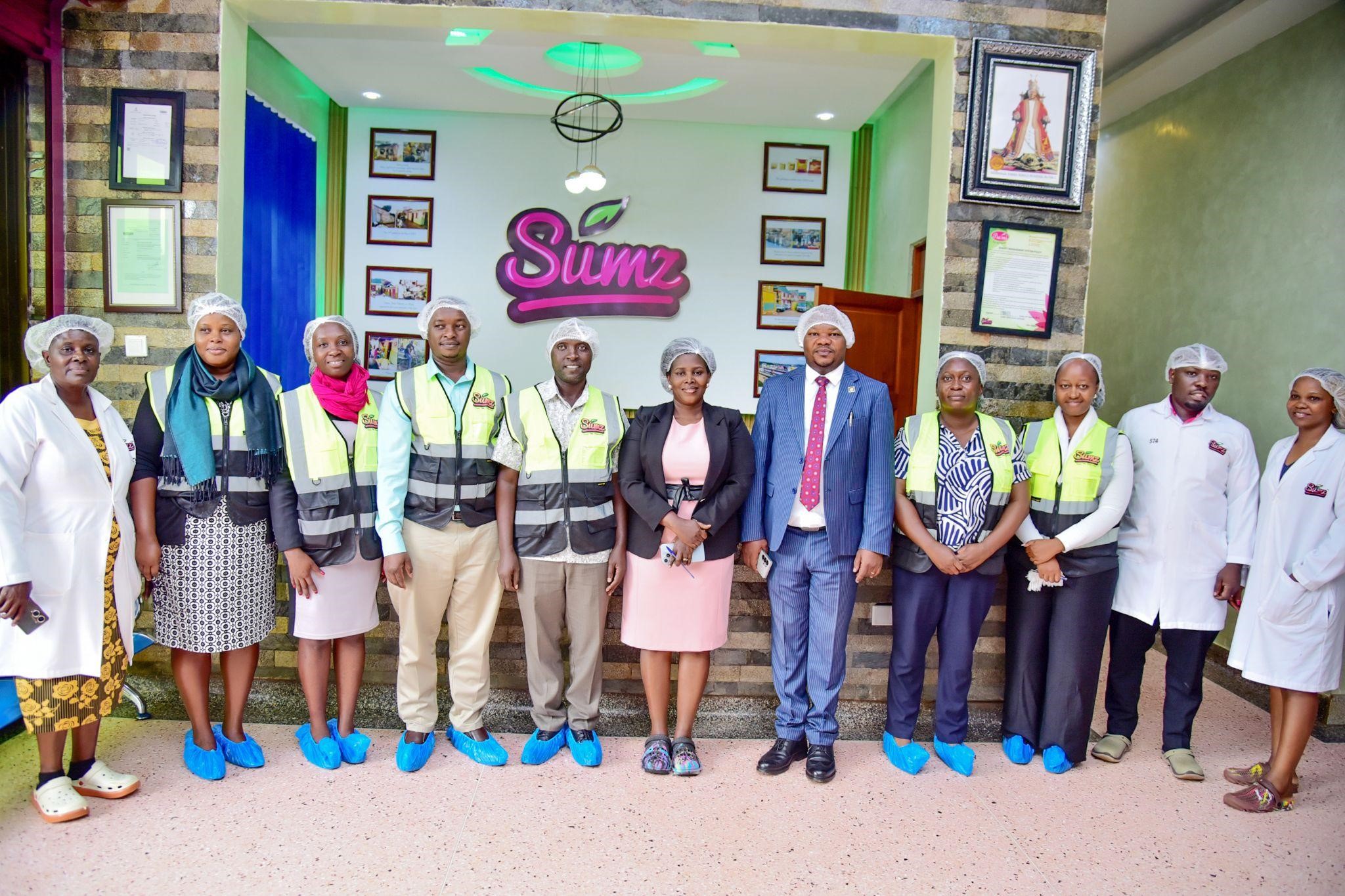
On 2nd March, 2026, representatives from the Advancement Office, the College of Business and Management Sciences and the University Innovation Pod visited Psalms Food Industries to discuss a prospective partnership aimed at strengthening university–industry collaboration in manufacturing, research, innovation, and skills development.
Psalms Food Industries, a homegrown snacks innovation and manufacturing company, operates three major brands, namely, Sumz, Afrikan Harvest and Krunchables, which have grown to a range of 37 products and target the introduction of five new products annually. The company distributes products across Kenya, Rwanda, the Democratic Republic of Congo, South Sudan, and, recently, Tanzania. As a labour of love, the idea of producing snacks was born during the honeymoon of Mr and Mrs Ngabirano, who now run Psalms Food Industries side by side.
Dr. Denis Ngabirano, CEO and Co-Founder of Psalms Food Industries, during the meeting, described the company as “a snacks innovation house, with all our products developed in-house.” He noted.
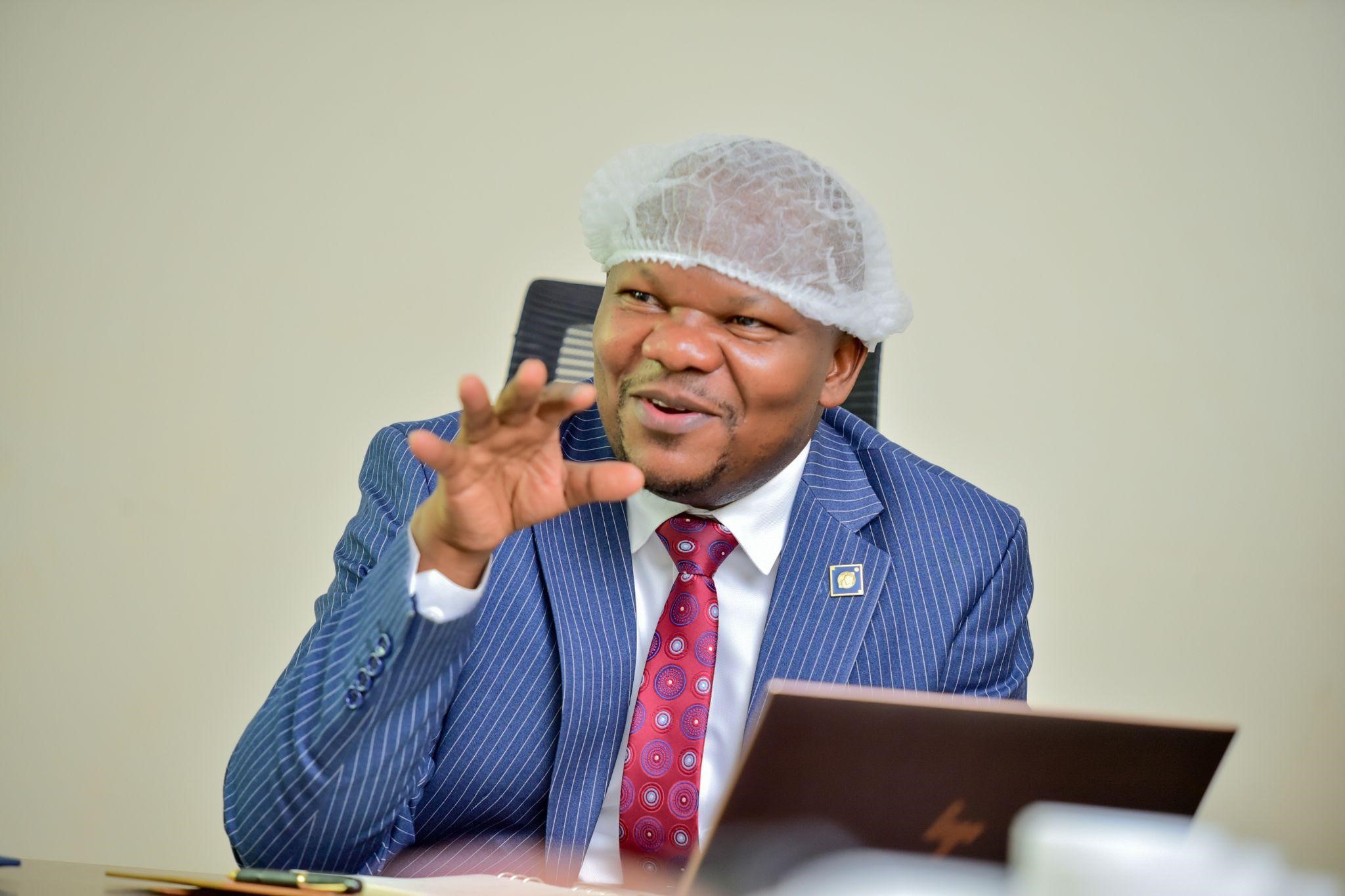
He emphasised the company’s commitment to quality assurance and consumer-centred research, noting that Psalms conducts surveys and gathers customer feedback to inform product development, supported by an internal microbiology and chemistry laboratory.
Dr. Denis Ngabirano noted that the company had only recently introduced two brands, “Afrikan Harvest for it’s health conscious clientele and Kruchables for it’s volume centric clientele.
“Afrikan Harvest has no additives, it is a brand for health-focused consumers,” he explained, while highlighting the differentiated positioning of their product lines. “Sumz is our premium brand, and Krunchables focuses on volume.”
Student-Centered Experiential Learning
A key focus of the meeting was structured experiential learning for students across disciplines. Potential areas of collaboration include internships, graduate trainee pathways, and hands-on exposure within Psalms’ incubation and production facilities.
The proposed engagement spans multiple fields, including environmental sciences, engineering, procurement and logistics, finance and accounting, quality control, production and manufacturing, human resource management, marketing, and international business.
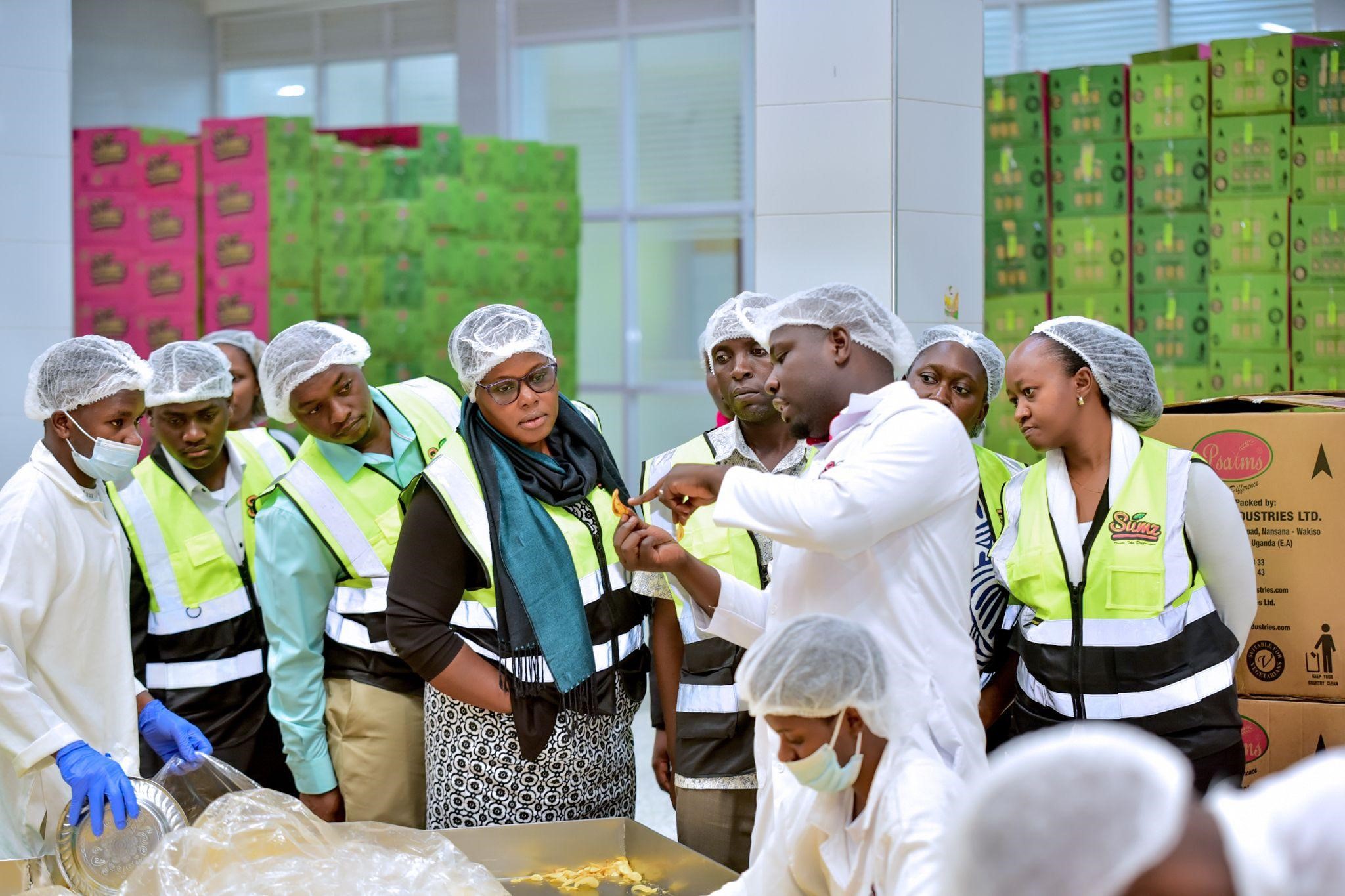
The partnership could provide students with direct exposure to real-time production systems, standard operating procedures (SOPs), and quality assurance frameworks, strengthening the practical relevance of their academic training.
Among the innovative ideas discussed was a potential competition involving students from the Fine Art and Industrial Design disciplines to redesign packaging for selected Sumz products. The proposal would allow top designs to be commercially adopted, creating a direct bridge between creativity, intellectual property development, and industrial application.
Research, Innovation and Commercialisation
Both institutions expressed interest in joint applied research initiatives, particularly in process optimisation, data analytics for manufacturing efficiency, product improvement, and sustainable production systems.
Opportunities were also discussed around collaborative research in machine design, crop development for snack processing, and factory energy solutions, areas that not only benefit Psalms but have broader implications for Uganda’s manufacturing sector.
The engagement further highlighted potential linkages with the University’s innovation and commercialisation structures, including the University Innovation Pod (UNIPOD), to support co-creation and scaling of student-led innovations.
Mr Awel Uwihanganye, Chief Advancement Officer at Makerere University, proposed strengthening the engagement through structured programming, including a planned collaboration between the University’s innovation Hub and the upcoming incubation Hub at Psalms Food Industries, particularly to support the commercialisation of research outcomes for both students and staff.
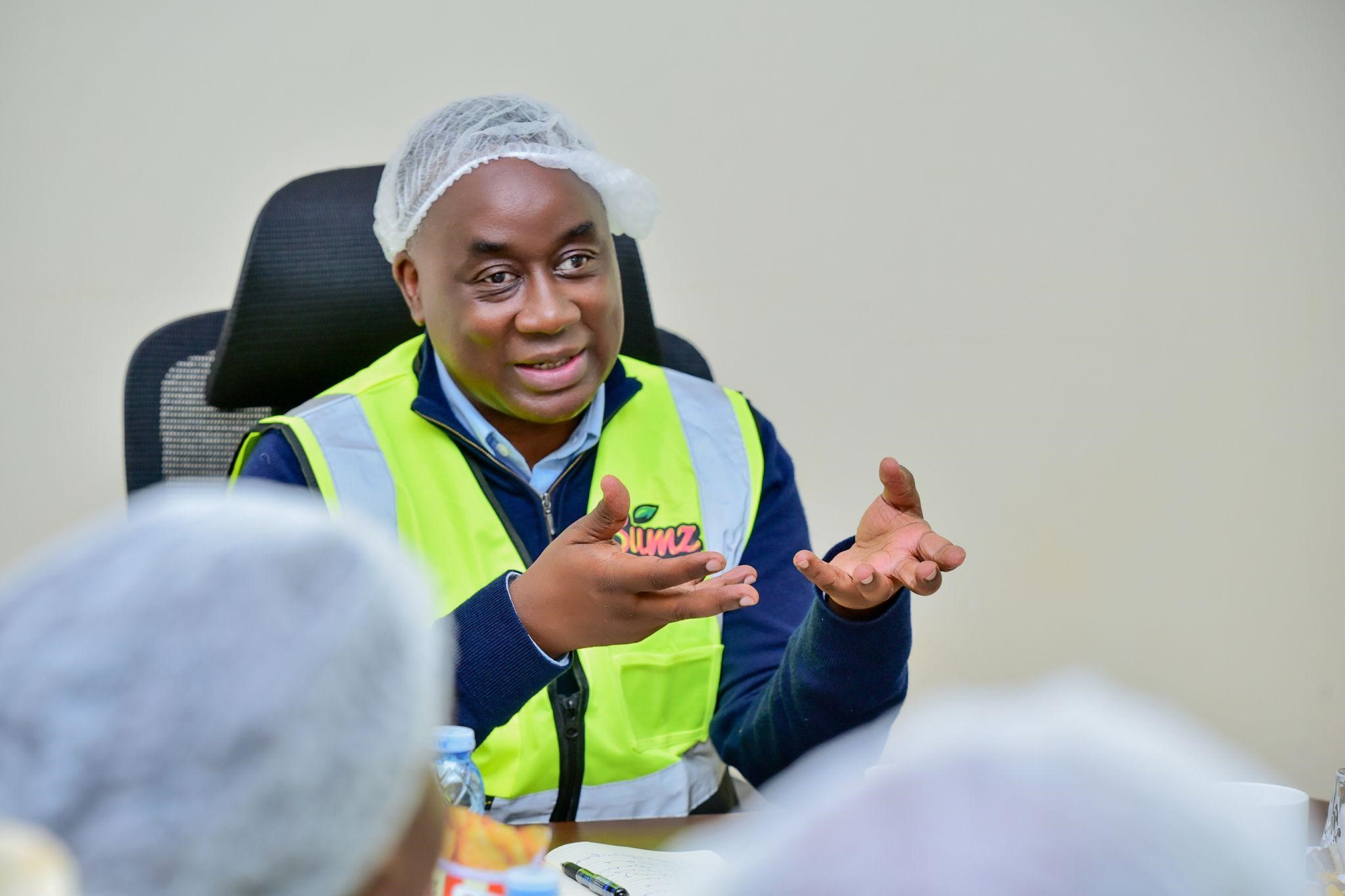
Curriculum Co-Creation and Staff Exchange
Beyond student placements, discussions also focused on co-developing academic content that responds more directly to industry needs, particularly within the manufacturing value chain.
Proposals included guest lectures by industry practitioners, staff exchange programmes to expose academic staff to factory operations, and tailored short courses for Psalms staff based on identified skills gaps.
Dr. Jude Mugarura, Head of the Department of Marketing and Management at COBAMS, emphasised the importance of embedding the partnership within academic programming. He proposed “internships for students in HR, marketing, international business, accounting and finance,” as well as staff exchanges to give University staff hands-on exposure to manufacturing operations.
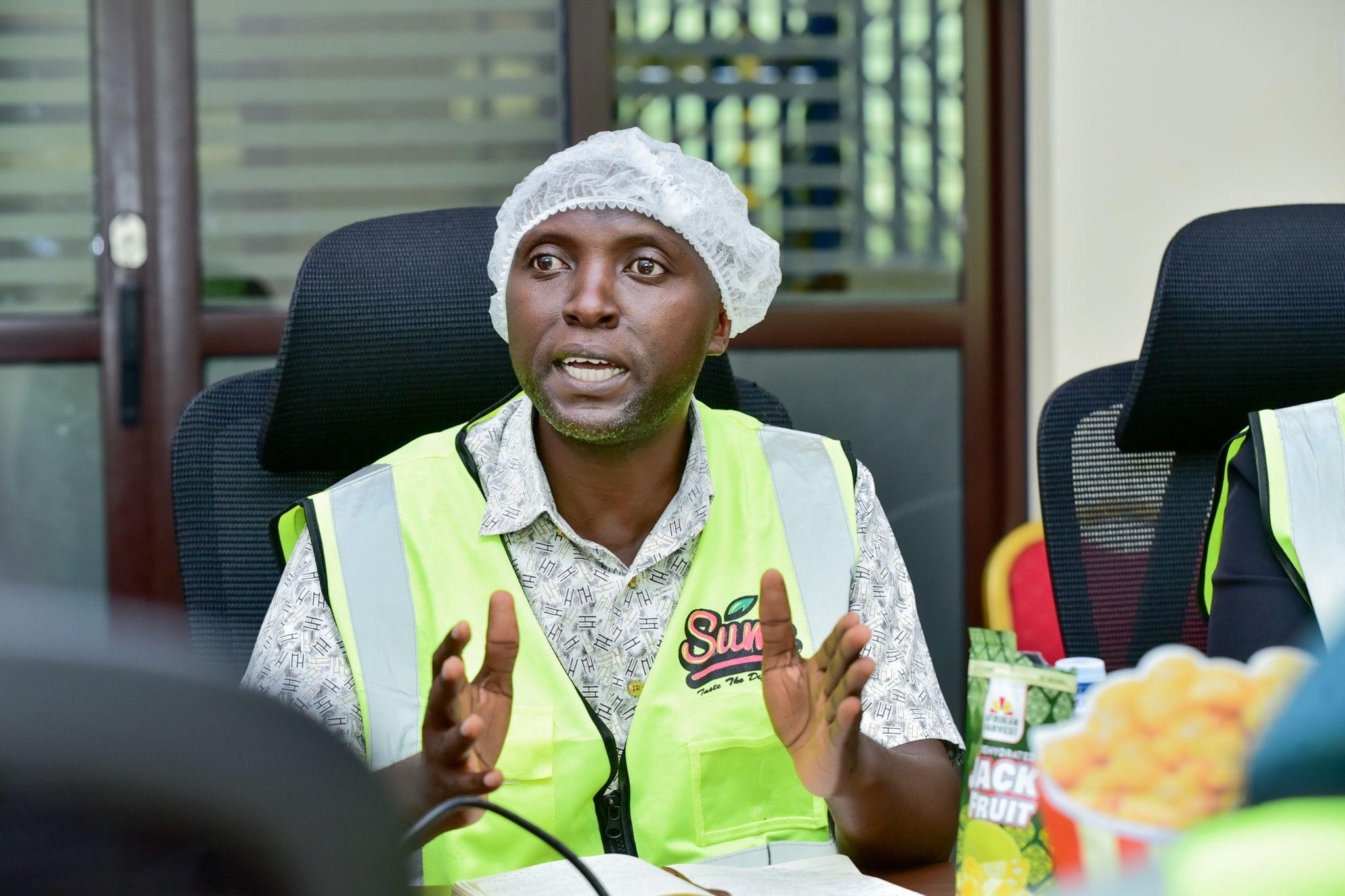
He further suggested specialised courses tailored to the factory’s needs and attachment of research students interested in manufacturing. Such collaboration would contribute to curriculum responsiveness and ensure that graduates are equipped with market-relevant competencies.
Strengthening University–Industry Linkages
The engagement reflects Makerere University’s continued commitment to strengthening partnerships that bridge knowledge generation and real-sector application.
Both institutions expressed a shared vision of building a structured, mutually beneficial collaboration that integrates research, innovation, skills development, and enterprise growth, positioning the University as a key knowledge partner in Uganda’s manufacturing transformation.
Discussions remain ongoing as both parties refine priority areas for formalisation.
Caroline Kainomugisha is the Communications Officer, Advancement Office.
General
Makerere University commemorates 13 transformative years of partnership with Mastercard Foundation
Published
2 days agoon
March 2, 2026
On Friday, 27th February 2026, Makerere University proudly celebrated 13 years of a significant partnership with the Mastercard Foundation, a prestigious independent organisation headquartered in Toronto, Canada. Since its inception in 2013 with the launch of the Scholars Program-currently headed by Prof. Justine Namaalwa, this collaboration has grown significantly, expanding to include two additional initiatives: The E-learning Initiative-headed by Prof. Paul Muyinda Birevu and the Africa Climate Collaborative-headed by Prof. Gorretie Nabanoga. This long-term partnership underscores the shared commitment to fostering education, innovation, and sustainability in Uganda and across Africa.
The colourful event coincided with the 76th Graduation Ceremony, during which Makerere University honoured Ms. Reeta Roy, the Founding President and CEO of the Mastercard Foundation, with an honorary Doctor of Laws.

In her commencement speech, Ms. Roy thanked Makerere University for considering a partnership with the Mastercard Foundation and for conferring upon her a prestigious honorary award.
“Mastercard Foundation is honoured to collaborate with this esteemed university, and I appreciate the recognition through this award. I am excited to be associated with Makerere University and look forward to actively embodying its values. Joining the broader community of alumni from this distinguished institution is a privilege, and I am eager to contribute to its legacy,” stated Ms. Roy.

During the reception in honour of Ms. Roy, the Chairperson of Makerere University Council, Dr. Lorna Magara, acknowledged the invaluable support from the Mastercard Foundation. She emphasised the profound impact of the Foundation’s various initiatives, particularly the scholarships for disadvantaged youth, which enable them to access higher education and opportunities that might have otherwise been beyond their reach.
“On behalf of the Makerere University Council and the broader University community, I extend our sincere gratitude to Mastercard Foundation for its commitment to collaborating with Makerere University in various endeavours, especially for providing scholarships to our underprivileged young people who would never have stepped inside a lecture room at the University.” Dr. Magara stated.

Dr. Magara, in a special way, thanked Ms. Roy for her transformative leadership and unwavering commitment to supporting young people in Africa, citing her efforts to ensure young people get their voices heard.
“As a university, our business is with young people. We are therefore committed to providing the environment and education that deliver meaningful pathways. We will provide an environment that ensures young people have a voice and agency to create meaningful change in society.” Dr. Magara pledged.

Dr. Magara further congratulated Ms. Roy on her honorary Doctor of Laws from Makerere University, noting that it is the university’s highest honour for individuals who have excelled in their careers.
“On behalf of the Makerere University community, I would like to extend my heartfelt congratulations on your honorary Doctor of Laws. This esteemed recognition represents the highest honour our institution can bestow on individuals who have demonstrated exceptional achievement and excellence across various facets of their career.” Dr. Magara remarked.
Prof. Justine Namaalwa, the Program Director of the Mastercard Foundation Scholars Program and the Coordinator for all Mastercard Foundation Initiatives at Makerere University, expressed her appreciation for the thirteen-year collaboration between Makerere University and the Mastercard Foundation. She highlighted that the partnership had yielded significant, impactful results.

“In 2013, Makerere University partnered with the Mastercard Foundation to educate the next generation of transformative African leaders who can positively impact their lives, their communities, and the economies of Africa. The partnership has had a significant impact. I thank the University Management and the Foundation team for this visionary collaboration,” remarked Prof. Namaalwa.
Prof. Namaalwa articulated that the partnership with the Mastercard Foundation is primarily focused on empowering young people as agents of change for transformational leadership in Africa. She presented compelling statistics demonstrating the positive impact of the scholars’ program, highlighting the success of individuals who have completed their education and their subsequent professional experiences after university graduation.

“This partnership focuses on young people, aiming to create positive change in their lives. To date, the Scholars Program has graduated 974 alumni, with 48% securing formal employment, 18% starting their own businesses, 8% participating in internships, and 5% pursuing further education. Overall, 72% of Scholar alumni are actively engaged in employment or entrepreneurship,” Prof. Namaalwa stated.
The colourful event showcased a dynamic array of activities that highlighted the entrepreneurial spirit of Scholars and alumni from the Mastercard Foundation at Makerere University. Attendees enjoyed a mini-exhibition featuring innovative products from these ventures.

A video documentary illustrated the positive impact of the three Mastercard Foundation initiatives. The event also featured inspiring poetry recitations by Scholars and a lively atmosphere of music and dance, creating an engaging and memorable experience for all participants.
The high-level event was attended by senior University officials, led by the Chairperson of Council, Dr. Lorna Magara; the Vice-Chancellor, Prof. Barnabas Nawangwe; the Vice-Chancellor, Academic Affairs, Prof. Sarah Ssali, Deputy, and the Ag. Deputy Vice-Chancellor, Finance and Administration Prof. Winston Tumps Ireeta. Mr Yusuf Kiranda, the University Secretary; and Prof. Buyinza Mukadasi, the Academic Registrar, Chancellor Emeritus-Prof. Ezra Suruma, former Chairperson of the Steering Committee of Mastercard Foundation Scholars Program-Prof. Umar Kakumba, and the Deputy Executive Secretary, RUFORUM, and former Program Coordinator of the Scholars Program at Makerere University-Dr. Florence Nakayiwa, among many other officials graced the function.

The event was also graced by a high-level delegation from the Mastercard Foundation, led by Ms. Reeta Roy, the Founding President of the Foundation, and included the Mastercard Foundation Teams from the Country offices in Kigali, Nairobi, and Kampala; the Program partners; the Mentors, Scholars and alumni; as well as the Program staff of the three Mastercard Foundation Initiatives at Makerere University.
At the end of the event, Makerere University honoured Ms. Reeta Roy with University memorabilia, including a pencil-drawn portrait, a pencil-drawn photo of the Ivory Tower, and other Ugandan crafts. Ms. Roy cut a graduation cake together with the 10 graduates of the 76th graduation ceremony from the Mastercard Foundation Scholars Program.
Bernard Buteera is the Principal Public Relations Officer for the Mastercard Foundation Scholars Program at Makerere University.

It is with great pleasure that I welcome you to this edition of Mak News Magazine, a publication that continues to chronicle Makerere University’s journey as a centre of academic excellence, innovation, and societal transformation.
The stories featured in this issue vividly demonstrate Makerere’s unwavering commitment to addressing national, regional, and global challenges through research, partnerships, and people-centred solutions. They reflect a university that is deeply engaged with society, one that applies knowledge not only to advance scholarship, but also to improve lives.
A recurring theme in this edition is innovation for resilience and inclusion. From the College of Agricultural and Environmental Sciences’ Healthy Soy Initiative combating child malnutrition amid climate change, to the cutting-edge work of CEDAT’s Team Green Minds integrating IoT into agriculture, Makerere continues to harness science and technology to respond to pressing development needs. Equally inspiring is the College of Natural Sciences’ success in securing international funding to scale up fish processing technologies, with a deliberate focus on empowering women and strengthening livelihoods.
This issue also highlights Makerere’s growing role in advancing health and wellbeing. The launch of the Early Intervention Psychiatry Services Clinic at Makerere University Hospital marks an important step in strengthening mental health services, while the Hospital’s transformation from a modest sickbay into a centre of excellence stands as a testament to decades of strategic investment, dedication, and service to the nation.
Our commitment to education access and global engagement is equally evident. Strategic partnerships, such as that between the College of Education and External Studies and the Uganda Vocational and Technical Assessment Board, are expanding pathways to quality education. The establishment of the first-ever United States Studies Centre in the Great Lakes Region positions Makerere as a hub for dialogue, research, and policy engagement on global affairs. We also celebrate our vibrant international community, with graduates drawn from 67 nationalities—affirming Makerere’s status as a truly global university.
This edition further showcases initiatives that ensure long-term institutional sustainability, including the launch of the CoCIS Endowment Fund, infrastructure developments such as the modern hostel at Buyana Farm, and transformative programmes supported by the Mastercard Foundation that continue to empower young people across the continent.
As you read through these pages, I invite you to reflect on the collective effort of our students, staff, alumni, partners, and supporters whose contributions make these achievements possible. Together, we continue to shape Makerere University as a place where knowledge serves humanity.
I wish you an engaging and inspiring read.
Prof. Barnabas Nawangwe
VICE CHANCELLOR
Trending
-

 Humanities & Social Sciences1 week ago
Humanities & Social Sciences1 week agoMeet Najjuka Whitney, The Girl Who Missed Law and Found Her Voice
-

 General1 week ago
General1 week ago76th Graduation Highlights
-

 Agriculture & Environment2 weeks ago
Agriculture & Environment2 weeks agoUganda Martyrs Namugongo Students Turn Organic Waste into Soap in an Innovative School Project on Sustainable Waste Management
-

 Health2 weeks ago
Health2 weeks agoMakerere University School of Public Health Graduates First Cohort of Cost-Effectiveness Analysis Short Course
-

 Agriculture & Environment1 week ago
Agriculture & Environment1 week agoCAES Presents Overall Best Performing Student in the Sciences & a Record 28 PhDs at the 76th Graduation Ceremony
